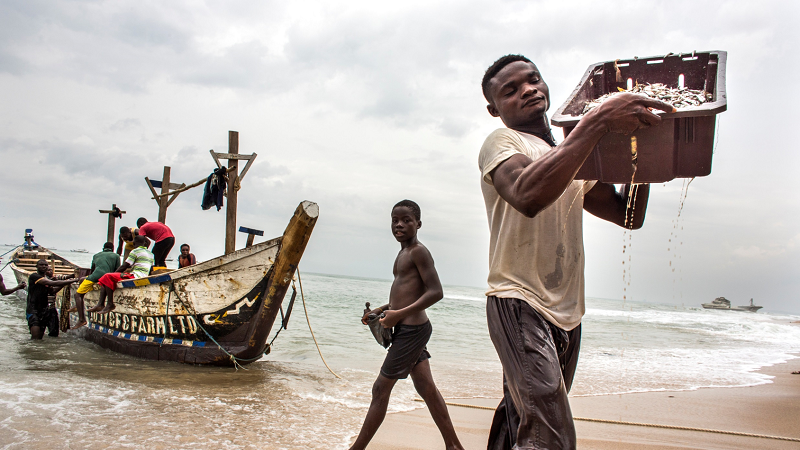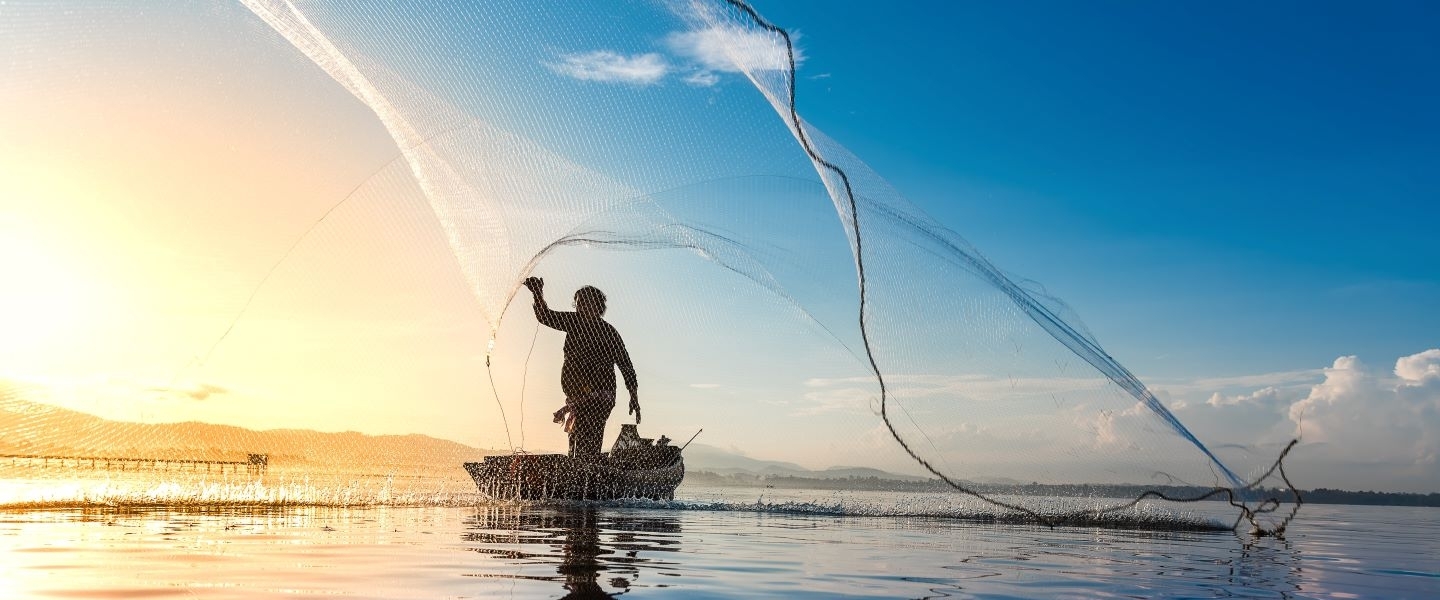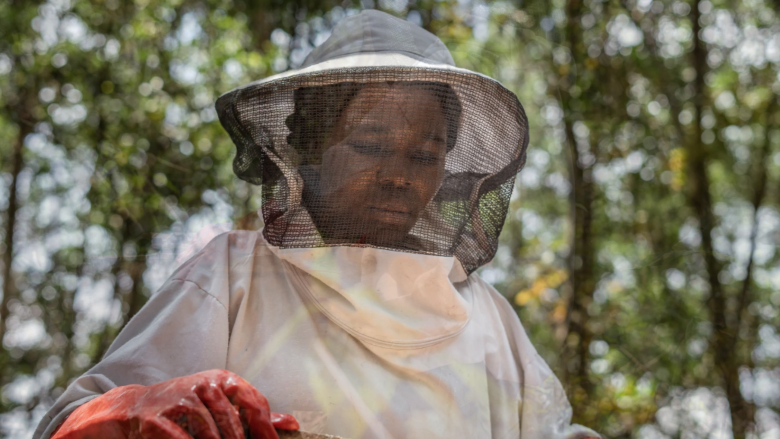
Benefits
A healthy ocean provides jobs and food, sustains economic growth, regulates the weather, and supports the well-being of coastal communities.
Billions of people worldwide —including some of the world’s poorest— rely on a healthy ocean as a vital source of jobs and food, which underscores the urgent need to sustainably use, manage and protect this natural resource.
As the largest carbon sink, the ocean absorbs greenhouse gases and significantly mitigates the impacts of climate change. Coastal ecosystems such as mangroves, tidal marshes, and seagrass meadows sequester and store more carbon per unit area than terrestrial forests. In addition, they also protect coastal communities from floods and storms.
While FAO estimates that the fisheries and aquaculture sector employs 62 million people in primary fish production, about 600 million livelihoods rely on fisheries and aquaculture. Over 80% are from small-scale fisheries. In 2021, aquatic animal foods provided about 3.2 billion people with at least 20 percent of their average intake of animal protein, with an even higher proportion in many poor countries (FAO 2022).
Challenges
Yet the ocean is in crisis due to rising temperatures and acidification. Coasts are threatened by sea level rise. Over-exploitation of resources, marine pollution, loss of biodiversity, and extreme weather events are putting billions of people, their jobs and marine life in peril.
While ocean resources boost growth and wealth, they have been brought to the brink from anthropogenic impacts. The FAO estimates that, worldwide, the percentage of fishery stocks not within biologically sustainable levels rose from 10 percent in 1974 to 37.7 percent in 2021. However, FAO also highlights that around 80% of the catch is being made from stocks that are sustainably managed.
Globally, fish stocks are significantly affected by Illegal, Unregulated, and Unreported (IUU) fishing, though the exact magnitude is difficult to assess. According to the World Bank study The Sunken Billions Revisited, fishing less would result in a 40% increase in global landed value, while also reducing the costs by more than 40%. The study further shows that a sustainable equilibrium for global marine fisheries, at which point the maximum net benefits could be achieved, would require a reduction of the global fishing effort by 44%.
The ocean is also threatened by pollution from land and sea activities. Plastics are one of the most visible parts of this pollution. Microplastics have been found around the world, in the food chain, air, ocean, rainwater, and even in ice in the Arctic. Plastic pollution hurts economies, ecosystems, and food security. Evidence is rising on the potential impacts on human health, including the presence of microplastics in our blood.
An estimated 15 million metric tons of plastic waste enter the ocean every year (PEW), and is expected to increase significantly by 2040. Without proper actions along the value chain, the total cost to governments of managing plastic waste between 2021 and 2040 will by some estimates reach US$670 billion. The cost of inaction can be particularly high for businesses (estimated at US$100 billion annual financial risk, by 2040).
Solutions
Improved fisheries management, reduction of harmful fisheries subsidies, investment in sustainable aquaculture and protection could restore the productivity of the ocean and generate billions of dollars in developing countries, while ensuring future growth, food security and jobs for coastal communities.
Conserving these ecosystems can help countries adapt and become more resilient to sea level rise and coastal erosion. Ocean warming can be addressed by storing carbon and reducing ocean acidification to make coastal communities safer and more prosperous.
Addressing plastic pollution requires solutions that are complex, multi-sectoral, and country specific such as:
Improving solid waste management, and building a more circular economy for public and private sectors;
Designing out waste and pollution, developing alternatives to single-use plastics or redesigning them to make them more recyclable;
Promoting the development of new industry sectors such as reuse/remanufacture;
Developing more financially sustainable recycling markets;
Restoring ecosystems by cleaning up.
Coastal communities, particularly in Small Island Developing States (SIDS), are heavily reliant on marine resources for jobs and food security. Engaging these communities, including women, indigenous people and other vulnerable groups, in conservation, restoration, and the sustainable management of natural habitats is a win-win. Not only does it provide much-needed income in the short term, but it also builds socio-economic resilience in the long-term.
Last Updated: Apr 21, 2025


